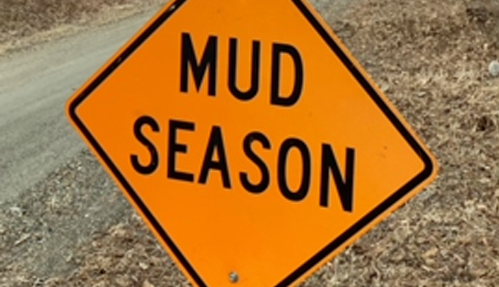
Dirt Road / February 23, 2021
It’s been five years since leaving NYC and trading in my high heels for muck boots and life on a dirt road. It still feels like freshman year at the University of Dirt Road.
When I traded 40 years of NYC for full time rural country living it was because I had this urgent need to be “outside;” it was more than Central Park or weekends in the countryside could deliver. I, who had spent the happiest part of my adult life traveling for business to major cities around the world, surrounded by humans, concrete and the occasional city park, now had this inexplicable need to be closer to nature.
Based on this rather sketchy notion, my husband Tom and I upped and left NYC. How we landed in a house on a dirt road in rural New England is a story for another time. Suffice it to say that the decision to live full-time countryside had nothing to do with gardening.
And now, I have co-founded a non-profit with Doug Tallamy, a call-to-action to restore biodiversity and ecosystem function so I can motivate people to do something I never before even thought about! Before “now,” none of this subject matter begged deeper dives for me; yet after attending one of Doug’s lectures, they clung to my consciousness like sticky glue.
Doug has a way of making the complex simple. His combination of science and logic make the case to restore biodiversity by planting native species, removing invasives, and not using pesticides was easy to grasp and opened the door for me, just a crack, to create a new relationship with nature.
Maybe just a crack but a seismic shift from being at that stage of competency known as unconscious incompetence. This basically means that you don’t know what you don’t know. There is no motivation to learn because you don’t know how ignorant you are. An insect was to be removed. A tree to be admired. A flower to enjoy. A hummingbird to marvel at.
I was blissfully ignorant – until that lecture.

No-one is more surprised than me that I now want to “start digging,” to rid our property of invasive plants, and to replace them with productive natives. This is all very ambitious for a neophyte who is now at that painful place of competency referred to as conscious incompetence. This stage is when you begin to develop an awareness of what you don’t know. It’s humbling and can be embarrassing – often.
Here is just one “embarrassing” instance. Back in October, I wanted a “bee” for an @homegrownnationalpark Instagram post, so I sent Doug a photo of one of his and one of mine asking if they were “good” bees. Here is his email response:
My bee is a bumblebee (a good bee). Your bee is an asilid robber fly; not a bee at all, but it's still good.
Not a bee? On closer inspection, ahem, it was clearly a fly.


So, what changed for me that I was e-mailing Doug about bees? What moved me from just living on the land to being part of it?
A lot.
It was gaining an understanding about loss of habitat, degraded biodiversity and why we humans need ecosystem services to survive.
What really inspired me was an easy, measurable solution to restore biodiversity – an ‘action’ Tom and I could do in our spare time.
All we had to do was remove egregious invasive plants on our property and plant native.
Seemed easy, but - what to plant? - what to remove?
This is when living on this a dirt road has its advantages (it’s surely not the mud!).
People who voluntarily live on dirt roads either made a mistake or are really connected to nature. Our neighbors, Robin and Mike are of the nature-loving sort. Between them, they have an impressive list of credentials including horticulturalist, landscape designer, soil, meadow, and wetland experts.
Robin and Mike, patiently and without judgment that belies their incredulity at my ignorance, inspire and teach me about the living non-human things around me including identifying invasive species from Asia and the native plants that belong on our land.
Tom and I started the removal and planting process and being of the “immediate gratification” kind, we were rewarded with so much. In addition to the increase in butterflies and birds, we had fewer ticks! Seems that huge invasive Japanese barberry that dominated a portion of our yard was a housing complex for tick-carrying mice.
This is a journey. It’s a dirty adventure. It’s fun. It’s purposeful. It is unfolding. It is filled with incredibly patient, well-informed people who want you in their club.
It’s a nice club.
February 2021 / Michelle Alfandari / Co-founder, Homegrown National Park


